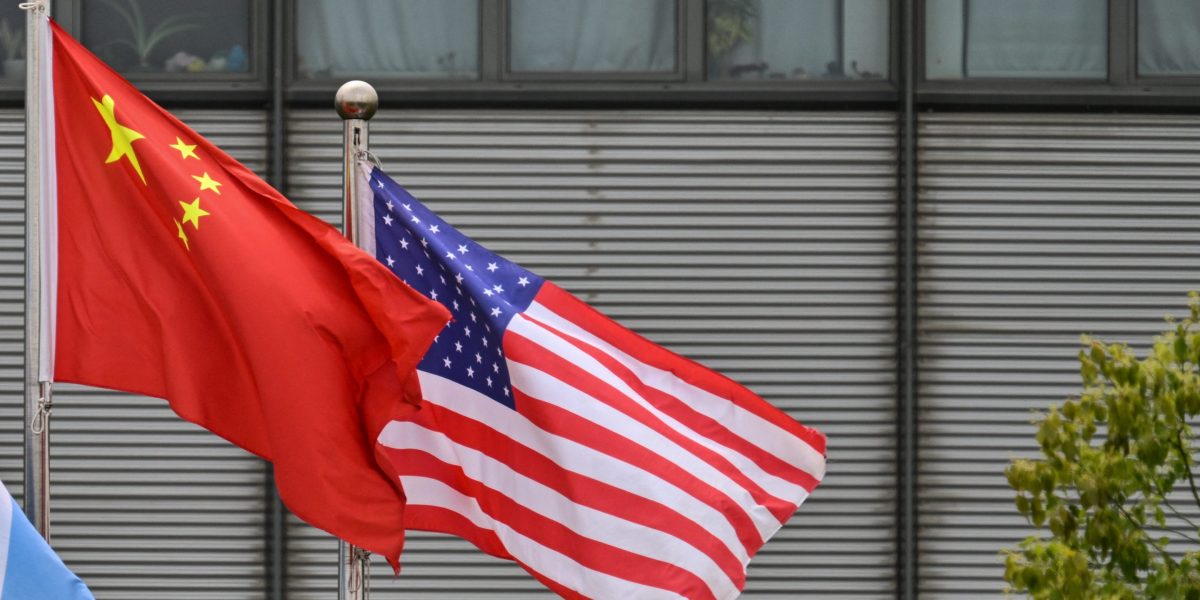China warned countries against striking deals with the U.S. that could hurt Beijing’s interests, upping the ante in the trade war with Washington and showing how others risk getting caught in the middle.
While it respects nations resolving their trade disputes with the U.S., Beijing “resolutely opposes any party reaching a deal at the expense of China’s interests,” the Ministry of Commerce said in a statement Monday.
If that happens, Beijing “will never accept it and will resolutely take reciprocal countermeasures,” the ministry added. “China is willing to strengthen solidarity and coordination with all parties, jointly respond and resist unilateral bullying acts.”
The warning comes as countries prepare for talks with the U.S. to seek reductions or exemptions from the sweeping tariffs that President Donald Trump imposed and later paused on around 60 trading partners. In exchange, Washington is pushing them to curb trade with China and rein in Beijing’s manufacturing power to ensure the nation doesn’t find ways around the tariffs.
Trump’s top economic advisers have been discussing asking representatives from other nations to impose so-called secondary tariffs — essentially a monetary sanction — on imports from certain countries with close China ties, Bloomberg News reported earlier, citing a person familiar with the process. Washington also wants trading partners to refrain from absorbing excess goods from China, other people said.
Vietnam is getting ready to crack down on Chinese shipments flowing across its borders on the way to the U.S., Reuters reported earlier.
China has in the past targeted countries whose cooperation with the U.S. it saw as damaging. Back in 2016, the U.S. and South Korea agreed to deploy a missile defense system known as Thaad that Washington said was intended to counter threats from North Korea. China complained the system would disrupt the region’s strategic balance and that its powerful radar would allow for spying on its missile systems.
China retaliated by suspending sales of package tours to South Korea and hindering the operations of Korean companies. Beijing and Seoul later agreed to move past the spat, though Thaad batteries remained in South Korea.
Last year, China declared it was banning both the sale of dual-use items to the American military and also the export to the U.S. of materials such as gallium and germanium, adding that companies and people overseas will be subject to the restrictions.
China is world’s top supplier of dozens of so-called rare earth minerals critical to the communications and defense industries, and concerns about its dominance have mounted in Washington since Beijing placed initial controls on exports of gallium and germanium.
Earlier this month, China retaliated against new tariffs by the Trump administration by not only announcing levies of its own, but by exacting export controls on rare earths. Exports of the materials were all but on hold as producers grappled with tighter permit requirements.
In an effort to counter some of the U.S.’s recent moves, China has stepped up its diplomatic outreach to Southeast Asia and Europe. President Xi Jinping toured Vietnam, Malaysia and Cambodia last week to rally an “Asian family” that can better deal with the risks resulting from Trump’s tariffs.
This story was originally featured on Fortune.com
Source link

 Entertainment8 years ago
Entertainment8 years ago
 Politics8 years ago
Politics8 years ago
 Entertainment8 years ago
Entertainment8 years ago
 Entertainment8 years ago
Entertainment8 years ago
 Tech8 years ago
Tech8 years ago
 Tech8 years ago
Tech8 years ago
 Tech8 years ago
Tech8 years ago
 Politics8 years ago
Politics8 years ago







